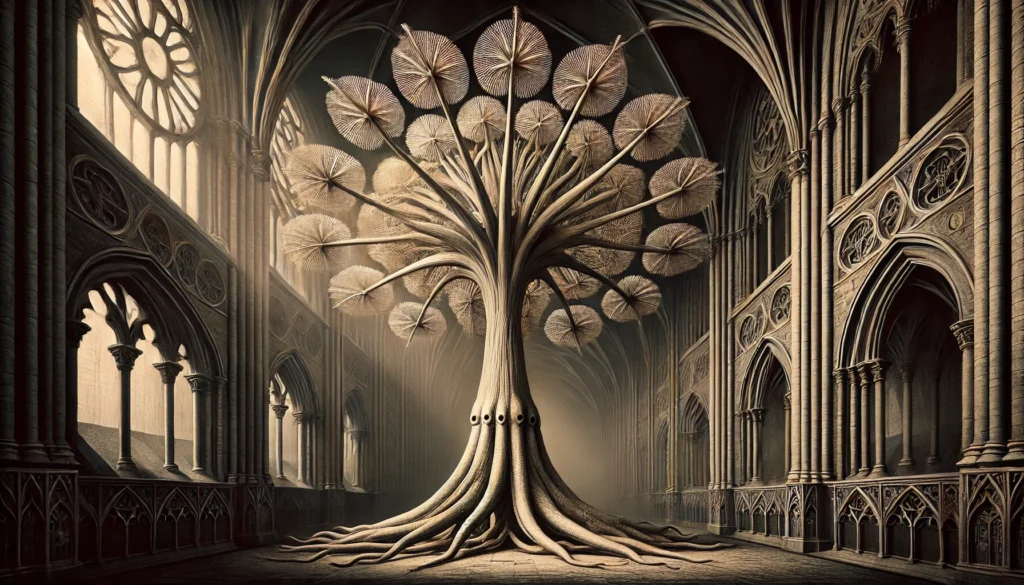

Home » Cat Plants » Could the Octopus Tree Plant Harm Your Cat?

The Octopus Tree, also known as Schefflera or Brassia actinophylla, is a popular houseplant that can be toxic to cats. While cats are not actually allergic to this plant, ingesting any part of it can cause adverse reactions and make your feline friend very sick.
The Octopus Tree contains insoluble calcium oxalates, which are poisonous to cats and can lead to oral irritation, drooling, vomiting, and difficulty swallowing if consumed. This tropical plant is commonly found as an ornamental houseplant or outdoors in warm climates.
Ingestion may cause mild gastrointestinal upset, but is generally not life-threatening.
Ingestion can result in mild symptoms like vomiting, diarrhea, or drooling. Rarely fatal but may require veterinary care.
Eating these plants can lead to more pronounced symptoms like abdominal pain, lethargy, or difficulty breathing. Veterinary intervention may be necessary.
Ingesting even small amounts can cause severe symptoms like organ damage, seizures, or cardiac failure without rapid treatment.
All parts of these plants are extremely poisonous to cats and can quickly lead to death, even with immediate veterinary care.
** Please note: Please note that toxicity level can vary based on the amount ingested and the specific cat. It's always best to keep these plants completely inaccessible to cats and seek immediate veterinary care or call the poison hotline if you suspect your cat has ingested any part of a toxic plant.
If your cat has ingested any part of an Octopus Tree, watch for these symptoms:
If you notice any of these signs, contact your veterinarian immediately. Prompt treatment improves the chances of a full recovery for your cat.
Your vet will likely perform the following steps to diagnose Octopus Tree poisoning in your cat:

A: Yes, the Octopus Tree is toxic to cats. It contains harmful substances like terpenoids and saponins, which can lead to symptoms such as vomiting, drooling, and difficulty breathing.
A: If your cat eats any part of the Octopus Tree, seek veterinary attention immediately. Early intervention is crucial to prevent severe symptoms like gastrointestinal distress and respiratory issues.
A: Cats that ingest the Octopus Tree may show symptoms like vomiting, drooling, and mouth irritation. In more severe cases, they might experience difficulty breathing and lethargy.
A: The Octopus Tree is moderately toxic to cats, similar to other houseplants like Schefflera and Dieffenbachia. While not as lethal as some, it can still cause significant health problems and should be kept away from pets.
A: Yes, all parts of the Octopus Tree, including its leaves and stems, are poisonous to cats. The plant contains toxic compounds that can harm your pet if ingested.
A: Yes, there are several safer alternatives to the Octopus Tree, such as Spider Plants and Boston Ferns. These plants are non-toxic and can help you create a pet-friendly environment without the risk of poisoning.
The Octopus Tree is native to Australia and New Guinea. It was first described by German botanist Berthold Carl Seemann in 1865. The plant gets its common name from the umbrella-like whorls of leaves that resemble an octopus’ arms.
Schefflera actinophylla gained popularity as a houseplant starting in the 1970s. Its tolerance for low light and neglect made it a common choice for homes and offices. However, its toxicity to cats and dogs was not widely known initially. With better awareness of the risks it poses to pets, the Octopus Tree is now usually recommended only for homes without cats or dogs.
Please note: The information shared in this post is for informational purposes only and should not be considered as veterinary medical advice.
🐾 A hilarious or heart-melting cat video
🐾 Our latest paws-on review of a cool cat toy